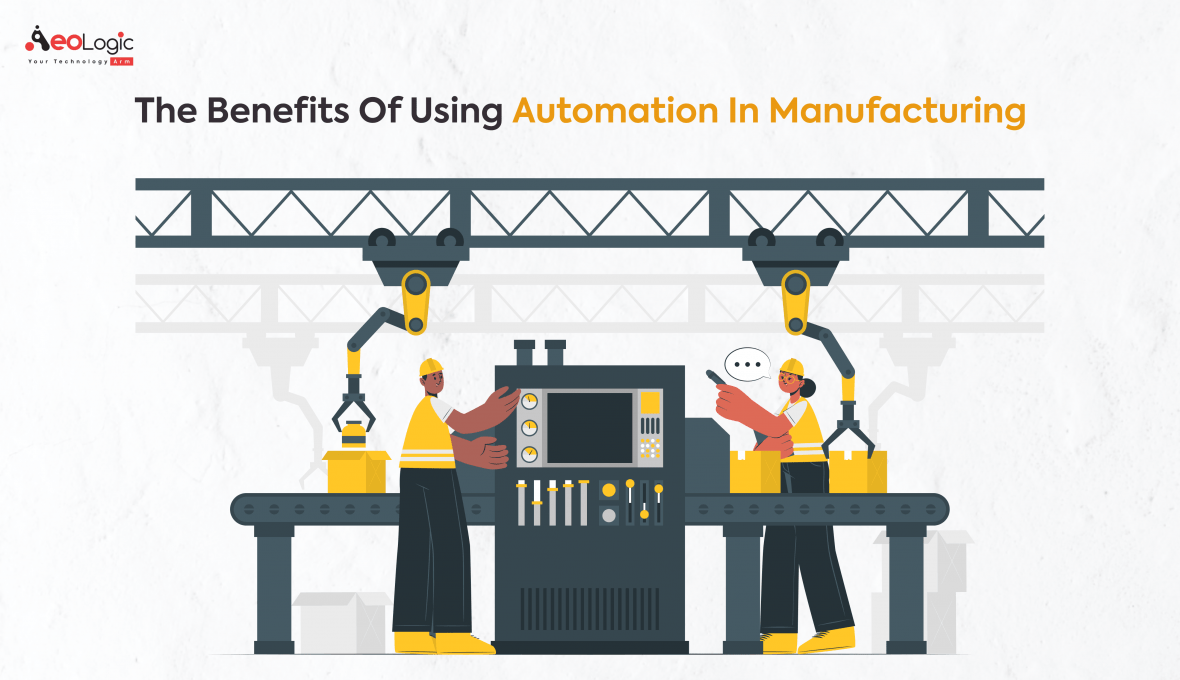In today’s fast-paced world, manufacturing industries are constantly seeking ways to boost productivity, streamline processes, and enhance overall efficiency. One revolutionary solution that has transformed the manufacturing landscape is automation. By leveraging cutting-edge technology and robotics, automation has become a game-changer in the industry, offering a multitude of benefits. In this article, I will explore the top 10 benefits of automation in manufacturing, shedding light on how it can revolutionize your business operations and help you stay ahead in the competitive market.
1. Increased Productivity
Automation in manufacturing leads to a significant increase in productivity. By automating repetitive and time-consuming tasks, you can free up valuable human resources to focus on more complex and critical aspects of production. According to recent studies by the International Federation of Robotics (IFR), implementing automation can boost productivity by up to 30%, enabling you to meet growing demands while maintaining consistent quality. These statistics highlight the undeniable benefits of automation in manufacturing.
Also Read: Top Smart Home Automation Systems You Should Use in 2023
2. Enhanced Quality and Precision
Automation ensures consistent quality and precision throughout the manufacturing process. By removing the element of human error, it minimizes variations in product quality, resulting in higher customer satisfaction. Automated systems adhere to precise specifications and execute tasks with remarkable accuracy, reducing defects and waste. With automation, you can consistently deliver products that meet or exceed customer expectations. The benefits of automation in manufacturing are evident in the improved quality and precision it brings.
3. Improved Efficiency and Cost Savings
Automation optimizes efficiency by eliminating manual interventions and reducing the time required to complete tasks. Streamlined processes lead to significant cost savings in terms of labor, energy, and materials. A report by the Boston Consulting Group (BCG) reveals that by implementing automation, manufacturers can achieve cost savings of up to 20%. With automation, you can achieve higher output with reduced operational expenses, ultimately improving your bottom line. The benefits of automation in manufacturing translate into improved efficiency and substantial cost savings.
Boost your business performance with our automation solutions!
4. Enhanced Safety and Risk Mitigation
Automation in manufacturing improves workplace safety by minimizing the risks associated with hazardous tasks. By assigning dangerous or repetitive tasks to automated systems, you can protect your employees from potential injuries and accidents. According to the Occupational Safety and Health Administration (OSHA), automation can reduce workplace accidents by up to 85%. With increased safety measures, you create a healthier and more secure work environment for your workforce. The benefits of automation in manufacturing extend to the realm of employee safety and risk mitigation.
Also Read: Benefits of Marketing Automation You Need to Know
5. Increased Flexibility and Scalability
Automation provides manufacturers with increased flexibility and scalability. Automated systems can adapt to changes in demand, allowing you to quickly adjust production levels and cater to market fluctuations. This agility enables you to respond to customer demands more effectively and reduce lead times. Additionally, automation simplifies the process of scaling up or down production, allowing you to expand your operations or optimize resources as needed. The benefits of automation in manufacturing become evident when it comes to flexibility and scalability.
6. Enhanced Data Collection and Analysis
Automation facilitates comprehensive data collection throughout the manufacturing process. By integrating sensors and advanced monitoring systems, you can gather real-time data on various production parameters. This data can be analyzed to identify bottlenecks, optimize workflows, and make informed decisions. Automation empowers you to track key performance indicators (KPIs) and implement data-driven improvements, maximizing operational efficiency and competitiveness. The benefits of automation in manufacturing include enhanced data collection and analysis capabilities.
7. Streamlined Supply Chain Management
Automation plays a vital role in streamlining supply chain management. By automating processes such as inventory management, order processing, and logistics, you can ensure seamless coordination and improved visibility across the entire supply chain. Automation enables faster order fulfillment, reduced lead times, and enhanced traceability, making it easier to meet customer demands and maintain healthy relationships with suppliers. The benefits of automation in manufacturing extend to supply chain management, simplifying operations and improving customer satisfaction.
8. Enhanced Innovation and Product Development
Automation empowers manufacturers to focus on innovation and product development. By automating routine tasks, you can allocate more time and resources to research and development activities. This allows you to introduce new products and enhancements to the market more quickly, keeping you ahead of the competition. With automation, you can foster a culture of innovation and continuous improvement, driving growth and customer satisfaction. The benefits of automation in manufacturing fuel innovation and drive product development.
Also Read: Benefits of Automation in the Food and Beverage Industry
9. Sustainable Manufacturing Practices
Automation promotes sustainable manufacturing practices by reducing waste, energy consumption, and environmental impact. By optimizing production processes, automated systems minimize material waste and energy usage, resulting in a greener and more eco-friendly approach. According to the United Nations Industrial Development Organization (UNIDO), automation can contribute to a 15% reduction in energy consumption in the manufacturing sector. By embracing automation, you can align your business with sustainable practices and contribute to a healthier planet. The benefits of automation in manufacturing extend to sustainability and environmental responsibility.
10. Competitive Edge and Future-Proofing
Automation offers a competitive edge and future-proofs your manufacturing business. In an increasingly competitive market, automation enables you to optimize operations, meet customer expectations, and stay ahead of industry trends. By embracing automation today, you position your business for long-term success and sustainability. Studies by McKinsey Global Institute suggest that automation could increase global productivity growth by up to 1.4% annually. By integrating automation into your manufacturing processes, you can secure your position as an industry leader and seize new growth opportunities. The benefits of automation in manufacturing are essential for maintaining a competitive edge and future-proofing your business.
Also Read: The Impact of Automation and AI on Staff Augmentation Services
Final Thought
The benefits of automation in manufacturing, including increased productivity, enhanced quality, improved efficiency, and cost savings, are undeniable. Additionally, automation brings about enhanced safety, flexibility, data analysis capabilities, and streamlined supply chain management. It fosters innovation, supports sustainable practices, and provides a competitive edge while future-proofing your business. By harnessing the power of automation, you can revolutionize your manufacturing operations and achieve long-term success in an evolving industry. Embrace the benefits of automation in manufacturing and propel your business into a future of efficiency, productivity, and sustained growth.
Are you looking to implement automation technology solutions into your business? If yes, so, please feel free to contact us at support@aeologic.com
Frequently Asked Questions
Will automation in manufacturing result in job losses?
Automation leads to a shift in job profiles rather than widespread job loss. Employees can be upskilled to focus on more complex roles, and automation creates new job opportunities.
Is implementing automation in manufacturing costly?
While there are upfront costs, automation brings long-term cost savings in labor, operational expenses, and materials. Advancements in technology have made automation more affordable and accessible for manufacturers of all sizes.






